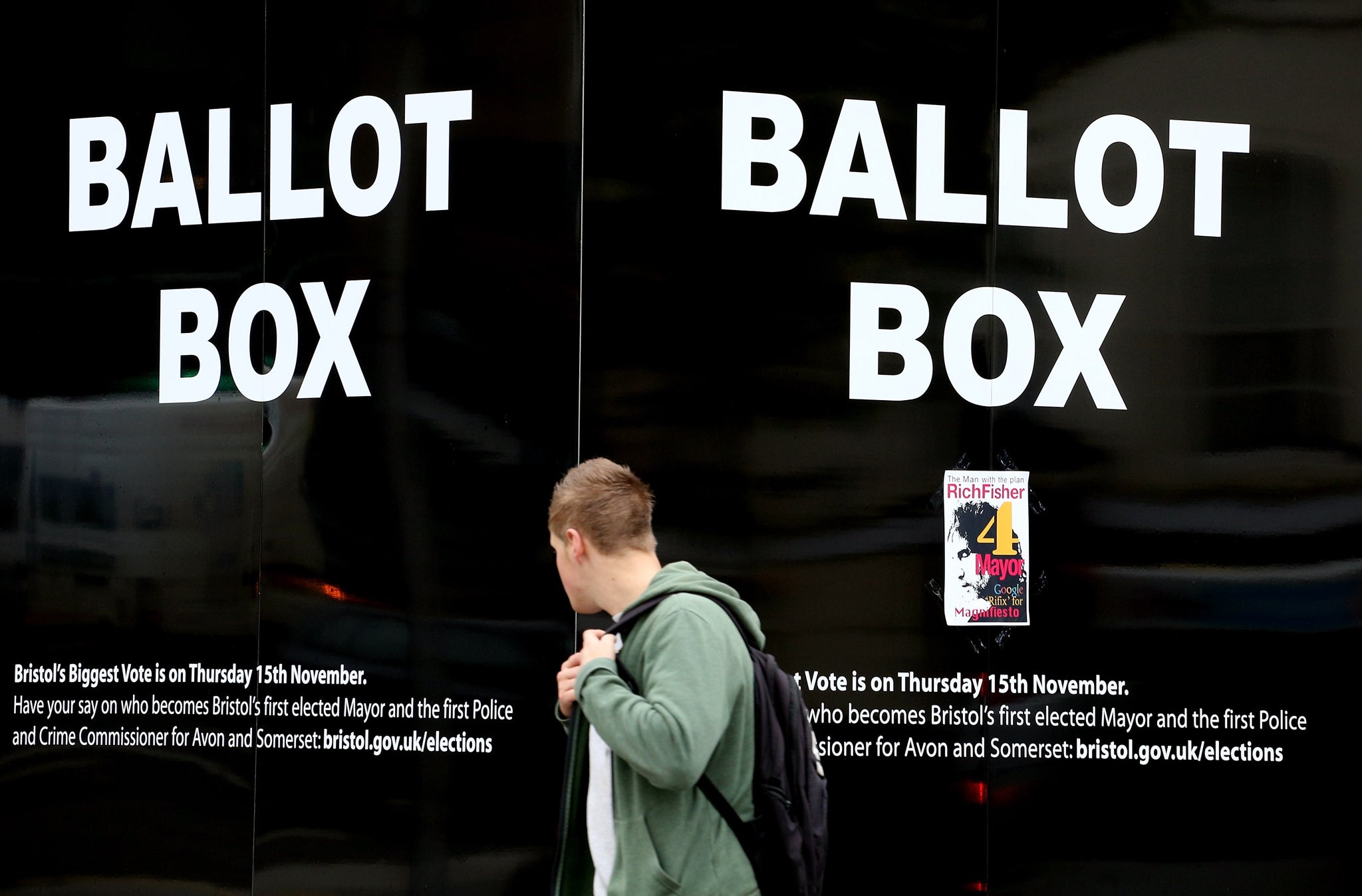What the victory of independent George Ferguson in Bristol tells us about the democracy in Britain
One of the most pronounced trends in British politics today is the move away from party allegiance towards independent candidates. Why are such people ever more popular?

After the Bristol Mayoral election we had no idea how we had done. Our independent candidate, George Ferguson, had been trailing at 4/1 against with the bookies and the Labour machine's Marvin Rees looked to be the clear favourite but within minutes of the count starting that Friday morning, the long faces of the main party teams told an unexpected story and the BBC was calling it for George.
How did an architect of no fixed political abode win an election that has the potential to change the way things are done in local politics?
Respect
He was the right man. Well known locally, not just for his red trousers, George commands respect across a wide swathe of middle Bristol. Kind, unstuffy and confident, he has personally delivered local regeneration projects for many years. The best known is the Tobacco Factory, where his theatre cum bar/restaurant has revitalised a dejected area but many of the other best bits of Bristol also bear his stamp. That grass-roots reputation, earned over forty years, was crucial.
It was the right time. Bristol politics and the incessant round of one third at a time Council elections had thrown the city's council into an ever-shifting game of musical chairs with successive leaders struggling to put their plans in place. Well meaning councillors all had the best interests of the city at heart but disagreed about what those best interests were. The city was stuck.
Bristol was the right place. It has the potential to be a Bordeaux or a Grenoble or any of those other European cities where sparky local politics have produced the innovation, the infrastructure and the sheer living pleasure that a modern city needs to attract modern business and to thrive. All it needed was the right spark.
He had a good team. They came out of the woodwork - unlikely volunteers most of whom had never fought an election before with one or two at the sharp end who knew Bristol politics well and had had quite enough of it. Everyone believed in their man and there was nothing cynical about it. George decreed early on that there would be no spin.
The other parties made mistakes. Coalition unpopularity doomed Conservatives and the tetchy Lib-Dems. Labour had a good young candidate with a juggernaut behind him but they made him spout slogans. He was forced to say his cabinet would be all-Labour and they booed him for that at hustings. The turn-out told the story - little more than 10% in Labour's strongest wards and up to 40% in leafier North Bristol.
Any independent campaign is up against it. We were just one campaign in a sea of mildly eccentric independents encouraged by very accessible thresholds of supporting signatures and deposit levels. Media coverage does not come automatically. We knew that Siobhan Benita, an excellent independent, had been nobbled in the London Mayoral elections by archaic broadcasting coverage rules. Early on, helped by media experience in the team, we convinced the BBC they should take us seriously, though we were less successful with ITV.
George became a one-man party, 'Bristol 1st', and criss-crossed the city energetically. Campaigns are bruising for those who come from real life and don't have that politician's rhino hide. Other parties blogged and tweeted against George incessantly and sometimes shamefully but we kept reminding him that every attack was proof that his rivals saw him as an emerging threat.
Cross-party
George had founded 'Bristol 1st' on the published 'Bell Principles' of probity and transparency, prompting one spiteful blog that Martin Bell wouldn't touch him with a bargepole. Martin Bell answered that one himself by coming to Bristol a few days later to endorse George in person - a satisfying and possibly outcome-influencing moment.
So came the day and we won with a clear lead on the first ballot, an even larger one after the second round and a turn-out that showed Bristol voters cared about this one. Since then, Labour's national executive have managed to alienate many of the party's Bristol supporters. They first allowed the local party to make up its own mind whether to join the Mayor's rainbow cabinet after being offered generous concessions. When local councillors decided they would do so, announcing it live in a radio studio to a startled mayor, they were almost immediately overruled by the national executive, forcing the chair of the local party to resign.
The NEC does not seem to have understood that this was not comparable to the formation of the Coalition which was something no voter deliberately chose. In Bristol, they knew they were voting for a cross-party approach when they elected George but a hardcore element in the Labour machine has chosen not to listen.
The real work starts here. Drastic budget cuts for this year were already almost set in stone and it isn't going to be easy, but the city now has a powerful advocate who wants to demonstrate the charms of Bristol across the world. He's tired, he says, of explaining to foreigners that Bristol is quite near Bath.

Join our commenting forum
Join thought-provoking conversations, follow other Independent readers and see their replies